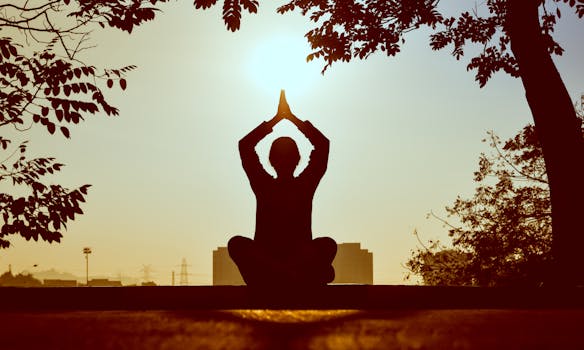Improve Sleep: Yoga Helps You Sleep Better
In today’s fast-paced world, sleep often takes a backseat to our busy lives. Many people struggle with insomnia, restless nights, and the overall quality of their sleep. However, an ancient practice that has gained popularity in recent years—yoga—offers a holistic approach to improving sleep quality. This article explores how yoga can help you sleep better, backed by research, expert opinions, and practical tips.
The Science Behind Sleep and Yoga
Sleep is essential for physical health, mental clarity, and emotional well-being. According to the Centers for Disease Control and Prevention (CDC), about one in three adults do not get enough sleep. This lack of sleep can lead to various health issues, including obesity, diabetes, and cardiovascular diseases. Yoga, a practice that combines physical postures, breathing exercises, and meditation, has been shown to positively impact sleep quality.
Research indicates that yoga can help reduce stress and anxiety, two significant contributors to sleep disturbances. A study published in the journal JAMA Internal Medicine found that participants who practiced yoga regularly reported improved sleep quality and reduced insomnia symptoms. The study highlighted that yoga not only helps in physical relaxation but also promotes mental calmness, making it easier to fall asleep and stay asleep.
How Yoga Promotes Better Sleep
Yoga promotes better sleep through several mechanisms:
- Reduces Stress: Yoga encourages relaxation and mindfulness, which can lower cortisol levels—the hormone associated with stress.
- Enhances Flexibility: Physical postures in yoga help release tension in the body, making it easier to relax at bedtime.
- Improves Breathing: Breathing exercises (pranayama) in yoga can enhance lung capacity and promote a sense of calm.
- Encourages Mindfulness: Meditation and mindfulness practices in yoga help quiet the mind, reducing racing thoughts that can interfere with sleep.
Effective Yoga Poses for Better Sleep
Incorporating specific yoga poses into your nightly routine can significantly enhance your sleep quality. Here are some effective poses to consider:
- Child’s Pose (Balasana): This restorative pose helps calm the mind and relieve tension in the back and shoulders.
- Legs-Up-The-Wall Pose (Viparita Karani): This pose promotes relaxation and improves circulation, making it ideal for winding down.
- Reclining Bound Angle Pose (Supta Baddha Konasana): This gentle stretch opens the hips and encourages deep breathing.
- Corpse Pose (Savasana): Often used at the end of a yoga session, this pose allows for complete relaxation and integration of the practice.
Case Studies and Testimonials
Numerous individuals have experienced the benefits of yoga for sleep firsthand. For instance, a case study published in the International Journal of Yoga followed a group of insomniacs who practiced yoga for eight weeks. The results showed a significant reduction in insomnia severity and an increase in overall sleep quality.
Additionally, testimonials from yoga practitioners highlight the transformative effects of the practice on their sleep. One participant noted, “After incorporating yoga into my nightly routine, I fall asleep faster and wake up feeling refreshed. It’s like a reset button for my mind and body.” Such personal accounts underscore the potential of yoga as a natural remedy for sleep issues.
Practical Tips for Incorporating Yoga into Your Sleep Routine
To reap the benefits of yoga for better sleep, consider the following practical tips:
- Set a Schedule: Aim to practice yoga at the same time each evening to establish a calming routine.
- Create a Relaxing Environment: Dim the lights, play soft music, or use essential oils to enhance your practice.
- Start with Short Sessions: If you’re new to yoga, begin with 10-15 minute sessions and gradually increase the duration.
- Listen to Your Body: Focus on poses that feel good for you and avoid pushing yourself into discomfort.
Conclusion
Incorporating yoga into your nightly routine can be a powerful tool for improving sleep quality. By reducing stress, enhancing relaxation, and promoting mindfulness, yoga addresses the root causes of sleep disturbances. With various poses and practices available, individuals can tailor their yoga experience to suit their needs. As research and personal testimonials continue to support the benefits of yoga for sleep, it becomes increasingly clear that this ancient practice holds the key to a restful night. Embrace yoga as a natural remedy for better sleep and unlock the potential for a healthier, more balanced life.
